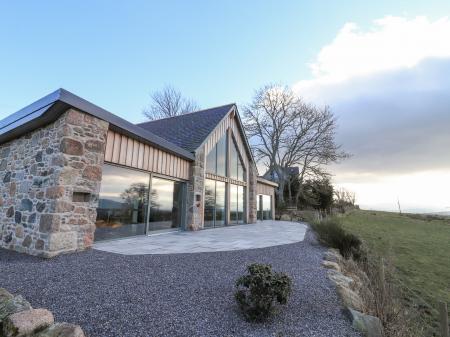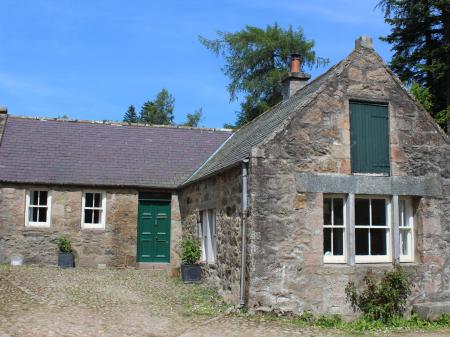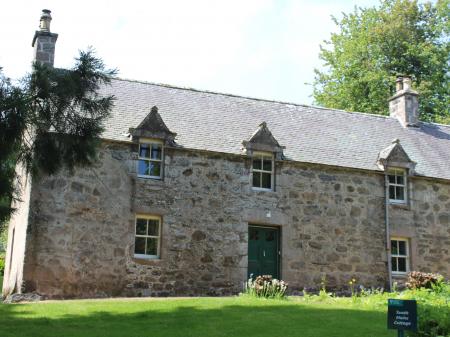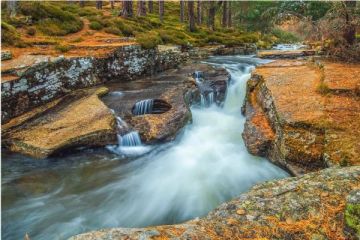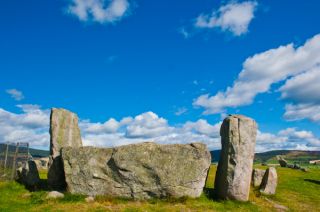
The second phase of building enclosed the area in a recumbent stone circle, with stones increasing in height towards the southwest, where a large recumbent stone was laid with two large upright flanking stones. It is possible that the two flanking stones were set to create an alignment with the peak of Lochnagar, 20 miles distant. More likely is that the alignment was used to track the midsummer moon. Around 1000 BCE the circle was used for cremation burials.
Some of the stones were removed during quarrying in the early 20th century, but these were later replaced in their original locations after the circle came into crown hands.
Visiting
There is a signposted parking area off the road, and a gently sloping gravelled walk to the circle, a distance of only 200 yards or so. It is really incredibly easy to get to! The views are wonderful; the hill isn't terribly high, but there is nothing blocking the view at all, so you get a full 360-degree panorama of the surrounding area. I found it intriguing to walk a bit down the slope of the hill and see how the stones aligned with distant features of the landscape.
The circle might easily have been situated so it stood out against the crown of the hill, and it is fun to speculate how it was seen in relation to the surrounding landscape. I wouldn't call Tomnaverie a stunning archaeological site, but it certainly is interesting, and worth a visit.






 We've 'tagged' this attraction information to help you find related historic attractions and learn more about major time periods mentioned.
We've 'tagged' this attraction information to help you find related historic attractions and learn more about major time periods mentioned.